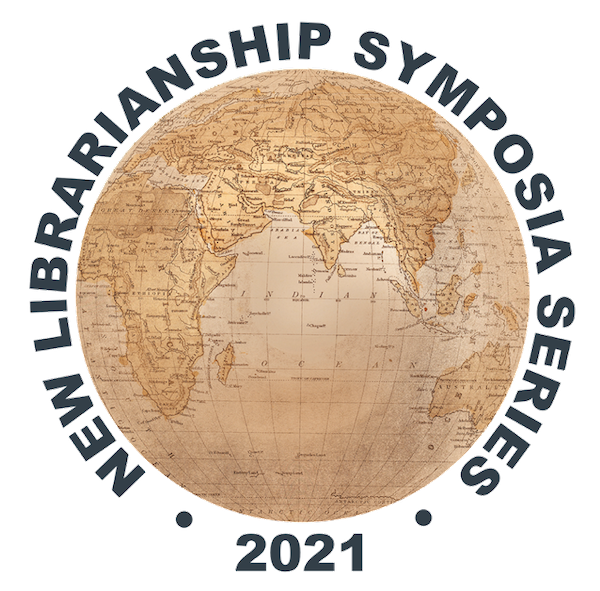Heritage Storytelling, Information Ethics, and Post-Neutrality Archival Practice: Drawing from Critical Heritage Studies and Critical Archivist Approaches to Move Toward a Polyvocal Archival Record
Submission Type
Paper Abstract Submission
Symposium Selection
Post-neutrality librarianship
Keywords
Information ethics; critical heritage studies; polyvocality; archives; historicity
Abstract
This paper traces a path through post-neutrality heritage storytelling that brings together the anthropological analysis of cultural heritage creation, preservation, and promulgation; critical heritage studies (e.g., Smith, 2006); contemporary institutional archival practice; and critical archival interventions by Archives for Black Lives (e.g., Drake, 2016) and The Blackivists, among others. Robinson-Sweet (2018) has argued that simply putting massive numbers of documents and other materials online, without being able to control what level of contextualization can happen, is a dangerous and potentially irresponsible act. The widespread existence of "authorized heritage discourse" (Smith, 2006) serves to limit and control what stories are valued and shared, but critical heritage theorists have argued that even within established spaces, room can be made for different sets of voices. Oral history collection is an often-adopted strategy for pluralizing archival collections, but this ought not be the only method used to amplify different voices. Participatory, community-oriented or community-driven ethnographic research can also be an important strategy.
Beyond bringing more content into archival collections, archival description and those who develop archival descriptions need to move beyond imagining a single, universal history that can be objectively shared with anybody, and move toward nuanced storytelling that offers retellings from multiple angles and points of view. Institutional archives have often been stymied by relationships with donors that preclude, or seem to prohibit, interventions aimed at reshaping existing narratives. Yet it is these interventions that are poised to deliver a new breath into heritage storytelling that can bring new relevance to archival collections. Building on calls to move beyond neutrality rhetoric (Pagowsky and Wallace, 2015), this paper draws on successful examples from museum studies literature and on analysis of intangible cultural heritage preservation projects to establish both space for new conversations about ethical archival practice, and a broader set of parameters for what counts as archives in the first place.
References
Drake, J. (2016, June 27). “Expanding #ArchivesForBlackLives to Traditional Archival Repositories.” Medium. https://medium.com/on-archivy/expanding-archivesforblacklives-to-traditional-archival-repositories-b88641e2daf6#.fr1uexerh
Pagowsky, N. & Wallace, A. (2015, April). “Black Lives Matter! Shedding library neutrality rhetoric for social justice.” College and Research Libraries News ACRL. http://crln.acrl.org/content/76/4/196.full
Robinson-Sweet, A. (2018). “Truth and Reconciliation: Archivists as Reparations Activists.” American Archivist, 81(1), 23-37, doi:10.17723/0360-9081-81-1.23.
Smith, Laurajane. (2006). The Uses of Heritage. Routledge.
Heritage Storytelling, Information Ethics, and Post-Neutrality Archival Practice: Drawing from Critical Heritage Studies and Critical Archivist Approaches to Move Toward a Polyvocal Archival Record
This paper traces a path through post-neutrality heritage storytelling that brings together the anthropological analysis of cultural heritage creation, preservation, and promulgation; critical heritage studies (e.g., Smith, 2006); contemporary institutional archival practice; and critical archival interventions by Archives for Black Lives (e.g., Drake, 2016) and The Blackivists, among others. Robinson-Sweet (2018) has argued that simply putting massive numbers of documents and other materials online, without being able to control what level of contextualization can happen, is a dangerous and potentially irresponsible act. The widespread existence of "authorized heritage discourse" (Smith, 2006) serves to limit and control what stories are valued and shared, but critical heritage theorists have argued that even within established spaces, room can be made for different sets of voices. Oral history collection is an often-adopted strategy for pluralizing archival collections, but this ought not be the only method used to amplify different voices. Participatory, community-oriented or community-driven ethnographic research can also be an important strategy.
Beyond bringing more content into archival collections, archival description and those who develop archival descriptions need to move beyond imagining a single, universal history that can be objectively shared with anybody, and move toward nuanced storytelling that offers retellings from multiple angles and points of view. Institutional archives have often been stymied by relationships with donors that preclude, or seem to prohibit, interventions aimed at reshaping existing narratives. Yet it is these interventions that are poised to deliver a new breath into heritage storytelling that can bring new relevance to archival collections. Building on calls to move beyond neutrality rhetoric (Pagowsky and Wallace, 2015), this paper draws on successful examples from museum studies literature and on analysis of intangible cultural heritage preservation projects to establish both space for new conversations about ethical archival practice, and a broader set of parameters for what counts as archives in the first place.
References
Drake, J. (2016, June 27). “Expanding #ArchivesForBlackLives to Traditional Archival Repositories.” Medium. https://medium.com/on-archivy/expanding-archivesforblacklives-to-traditional-archival-repositories-b88641e2daf6#.fr1uexerh
Pagowsky, N. & Wallace, A. (2015, April). “Black Lives Matter! Shedding library neutrality rhetoric for social justice.” College and Research Libraries News ACRL. http://crln.acrl.org/content/76/4/196.full
Robinson-Sweet, A. (2018). “Truth and Reconciliation: Archivists as Reparations Activists.” American Archivist, 81(1), 23-37, doi:10.17723/0360-9081-81-1.23.
Smith, Laurajane. (2006). The Uses of Heritage. Routledge.


